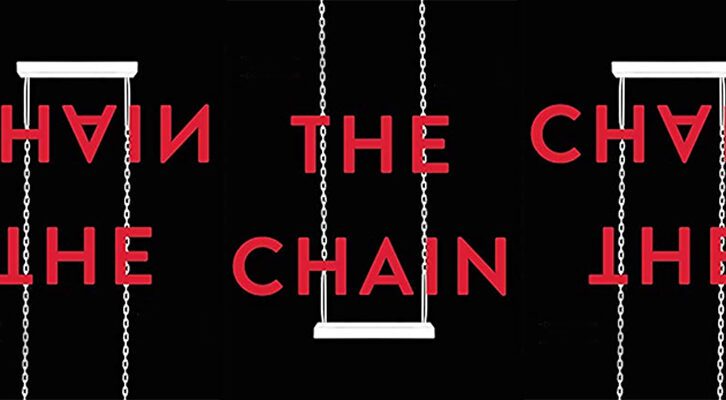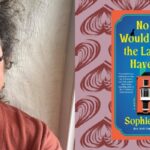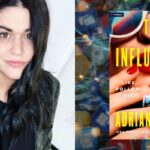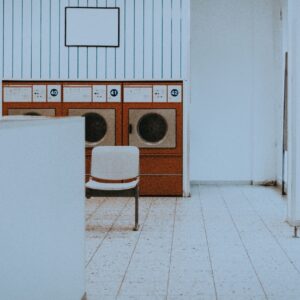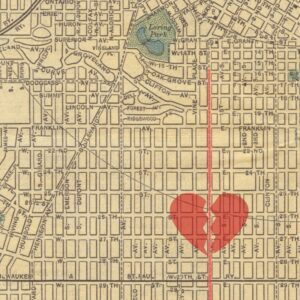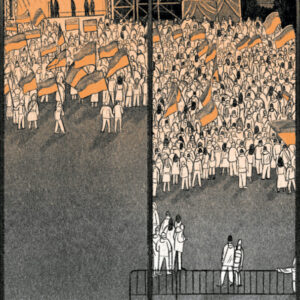“Fuck yeah, dude. We did it.”
That’s the entire text of an email both of us have saved in our archives, an email containing the first full draft of our first collaborative novel. It was a moment of huge accomplishment and pride. It took us two and half years to reach that point, and another two years to show the book to friends, rewrite it completely, twice, and eventually secure an agent. But if you go looking for that book, Slaughter at Suez—a pulp adventure mystery novel set in 1862, Egypt—you will not find it. We thought Suez would be our debut novel. We were wrong. The book never sold.
The manuscript file is still mouldering in some obscure folder on Chris’s hard drive. We take a peek at it every now and again and every time we do, the warm and deceitful hand of nostalgia squeezes our hearts and we think for a moment of resurrecting it. That book represents a huge sunk cost for us: four years of meticulous research and whimsical world-building. And it was so much fun to write! A tomb unearthed in the Suez Canal dig, fisticuffs atop a pyramid, a hot-air balloon chase, a bumbling diplomat afflicted with syphilitic dementia! How could we have given up on it?
The answer to that question is complicated and it begins with the novel’s inception in the Protestant Cemetery in Rome. We had just met on a study abroad program and had found in each other a kindred sense of humor, defined mostly by a tendency toward absurd elaborative riffing. And so when one of us noted a funny name on a headstone (Aeneas MacBean), the other suggested he was a Scottish Egyptologist in the 1860s. Frail and anemic? Of course. Bespectacled, decorous, an academic from Oxford University! What was happening in the 1860s? I know: the Suez Canal! They discover a tomb and people start dying. A mummy curse? They call in boorish, blustery, British detective, Baltimore Gosshawk Wakefield III, FRS, CMG, Knight Grand Cross of the Royal Guelphic Order!
MacBean: You can’t just ash your pipe into that canopic jar!
Wakefield: Can’t I? Simple observation would seem to indicate otherwise.
MacBean: It’s a rare artifact!
Wakefield: I say! Almost as rare as Scots who can read, and just as mincingly delicate. You deserve each other. Catch!
Over a month in Rome, these bit one-liners evolved into developed, if hyperbolic and absurd, characters. On returning to Seattle, we decided to write a novel based around these characters and their jokey routines. That was our first problem and it led to a lot of headaches later on. As we constructed our plot, we built it around these set-pieces, contorting it to include a tomb discovery, a fob-watch mesmerism, a brawl in the engine room of locomotive traveling between Cairo and Suez. The plot was a byzantine mess. But we didn’t even realize that because we were too focused on making the book literary. That was our second major problem, and it played out in several ways.
Our first attempt in this direction: historical accuracy. We read dozens of books about the canal construction and about Ferdinand de Lesseps, the French diplomat turned industrialist who would become a central figure in the novel. We studied up on Egyptology, on 19th-century British slang, on a French cult known as the Saint-Simonians, never quite realizing that historical accuracy is antithetical to the very spirit of pulp adventure. We wanted it both ways.
But before we could come to grips with that issue, we pushed onward. We attacked the literary problem from another angle. The novel couldn’t just be Monty Python meets Indiana Jones. It had to also be a meta-investigation of the very nature of deductive reasoning, a la Sherlock Holmes, a la Poe’s Auguste Dupin, with a touch of Borges.
We tried. But we failed to sell the book.
What was the problem? What else: it still wasn’t literary enough. So we made it more meta! We created a frame narrative set in 1916, in the midst of the Great War, where an anonymous narrator, prone to tall tales, ailing in a hospital and perhaps losing his mind, recounts the murders at Suez in 1862. Once this frame narrative was in place, it was only natural to then include tons of extra-narrative documents between chapters: fictional encyclopedia entries, tomb blueprints, diagrams, letters, even a 15-page Beckettian melodrama called “World Ditch” about the politics surrounding the canal construction (it ended with ushers tossing buckets of saltwater and north atlantic cod on the audience). The book was now an exploration of the nature of hyperbolic adventure novels!
Again, we tried, perhaps came close, and also failed to sell the book.
We first looked outward for explanations: the book was crazy, mongrel, it defied categorization. Monty Python x Indiana Jones x Sherlock Holmes x Borges x Pynchon? (Yes, Pynchon crept in there, too). What shelf does that book belong on? Who do you market it to? No publisher wanted to touch it.
Over time, we began to look inward and we realized what the central problem was. In all our struggle to make the book literary, though we added in meta observations about deduction, though we refined the historical accuracy, we failed to fulfill the central promise of a mystery novel: to provide a satisfying mystery. The plot we’d cobbled together around our original set-piece jokes was so complicated, it contained so many clues and so many misdirections, and it was shot through with so many tangential side jokes. At its most indulgent, we even included, purely as a teaser for the next Baltimore Wakefield adventure, a two page pseudo-scientific treatise, written by syphilitic diplomat Horace Blandemeal, on certain curious optical phenomena and the lost continent of Atlantis. Such interludes obscured the arc of the mystery. We were like children throwing all our favorite foods into one pot. What the book needed was clarity of vision. It wanted to be too many things. It needed a rewrite from scratch.
Realizing this back in 2008 is what led us to finally give up on Slaughter at Suez and start working on a new and very different book, War of the Encyclopaedists, a realistic, literary novel set in Boston and Baghdad in 2004. This turned out, as far as the world knows, to be our “debut novel.”
But we couldn’t have written Encyclopaedists without laboring over that first book, figuring out which struggles are worth fighting, which uncertainties are a sign of fertile ground and which aren’t. Suez taught us the danger of plowing forward without first arriving at a coherent vision.
We don’t regret the four and half years we spent on that book. As wasteful as it sounds, it was crucial to our development as writers. We not only honed our dialogue and learned how to craft more developed characters, but we learned to rein in our indulgent impulses and to refine our vision of the book early on. We also learned the value of subtractive thinking. With Suez, we were always looking for something to add when the book didn’t quite cohere. With Encyclopaedists, we arrived at cohesion by paring down and simplifying. Perhaps most important of all, Suez taught us how to persevere when things seemed pointless. In any novel, there will be days, weeks, even months, when the whole project is screaming out to be abandoned. We’ve learned to ignore those screams. And it’s allowed us to bring a new book we’re proud of into the world. It comes at a small price: we keep our ugly, unfit child locked in the basement.
And we’re not alone. We reached out to other writers to see what they learned from their abandoned and unsold manuscripts. Here’s what a few of them had to say.
Marlon James (A Brief History of Seven Killings, Riverhead, 2014)
At one point, my drawer novels outnumbered my published novels. I have what I call ‘rebound books,’ books written in response to the horrible postpartum depression I get when I end a novel. My first drawer book was narrated by Jamaican prostitutes. My second was told by twin albino gospel singers on the run from a mass-murdering maniac who was also their manager. And old friend still blackmails me with the sole existing copy of my F&D novel, Dead Men, and the less said about that one, the better.
Edan Lepucki (California, Little, Brown, 2014)
I’ll always love my first book, and recognize what’s strong and unique about it. But even a few years ago, when my agent and I decided to stop sending it out, I knew my next book, which was California, was a better novel. So, yes, I can see the flaws of that unpublished novel, and I’m happy it isn’t out in the world.
But I can still conjure up the pain and disappointment I experienced back then, facing all that rejection. I’m certainly glad everything turned out as it did, but I haven’t forgotten how hard it was at the time. Remembering that feeling makes me work harder, and I feel that much more grateful for any and all publishing success I enjoy now.
Bill Cheng (Southern Cross the Dog, Ecco, 2014)
I got three or four beginnings of novels. Usually it’s never a substantial amount because I can tell pretty early on when things are not working and can’t get to a solution. Sometimes it manifests itself as losing interest, or feeling like you’re more invested in this other idea that conveniently sprung up, or that you’re not skilled or experienced enough to carry out a particular project.
So much of the writer’s identity, at least for me, is wrapped up in the creating of the book so you end up self-flagellating whenever things fail. It’d be nice to have that space to stumble and still be confident that you’re getting better as a writer. I don’t know if I’ve learned much from my aborted or abandoned projects. Maybe that’s the point. You don’t learn anything from what you don’t finish.
Daniel Torday (The Last Flight of Poxl West, March, 2015)
When I was an undergrad I wrote about 90 pages of a novel about a kid who lived in a movie theater on the Lower East Side. The first 15 pages got me into the Syracuse MFA program five years later. But when I got there it fell apart. It was like what felt like rock ground down to sand. I think I just hadn’t convinced myself it was a novel. If I’d been more convinced I think I could’ve finished it. Novel writing is all about your own conviction in a project I think. Somehow that book was too much a product of imagination for me at the time.
Lauren Holmes (Barbara the Slut and Other People, Riverhead, 2015)
I don’t have a drawer novel, but I do have a shelved collection of short stories. I wrote it in college and it was so important to me to write but not important to me to publish—in fact, I had a feeling I would be glad I didn’t publish it, and I am. I knew I wanted to write fiction, and those stories weren’t fiction—they weren’t even autobiographical fiction, they were fictionalized autobiography. I also remember thinking that if I was going to use that material, I could probably use it better later. Which is funny to me now, that I thought my autobiography was good material. But I learned so much from writing that collection. How to write stories, really—what makes a story, and how to use characters, plot, dialogue, and details.
Anthony Doerr (All the Light We Cannot See, Scribner, 2014)
I’ve abandoned multiple projects: a novella about salmon, half a novel about a lighthouse keeper, at least a dozen stories. It’s not something I’ve outgrown either; storytelling is mostly trial and error for me, and I never know what I’m making until I try to make it. But I also think it’s very important not to get too attached to metrics: this piece “succeeded,” this piece “failed.” Ultimately we ought to make things out of these unreliable and tricky entities called words as a kind of play, and to play as well as we can only because we are playing, not necessarily because there is any result at all attached to the outcome.
Colum McCann (TransAtlantic, Random House, 2014)
I think nearly every writer has a novel in the drawer. I have two. They’re both dreadful. I should burn them really, but sometimes I just glance at them to remind myself how lucky I have been to escape them. One of them, Uncle Saccharine, was written when I was 22 and it almost got published which I think would have sounded a very loud death knell for my writing career. Seriously, it’s abysmal. Even the drawer it’s in should be burned. I think drawer novels are what writers know, rather than good novels where writers investigate what they want to know. It’s an important distinction. My two drawer novels were entirely diseased with self-consciousness.
Christopher Robinson and Gavin Kovite
Christopher Robinson has an MFA from Hunter College; he has published in The Kenyon Review and McSweeney's. Kovite was an infantry platoon leader in Baghdad from 2004 to 2005; his writing has appeared in the anthology, Fire and Forget. War of the Encyclopaedists is their first novel.












